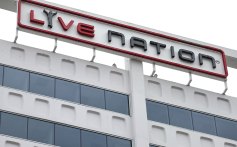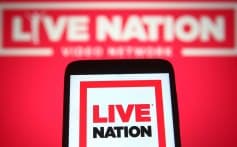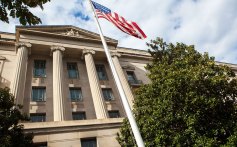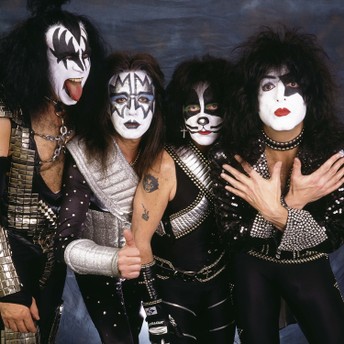Live Nation Moves to Crush DOJ Antitrust Case With Motion to Dismiss
Written by djfrosty on November 19, 2025
Trending on Billboard
Attorneys for Live Nation and Ticketmaster are hoping to end the Department of Justice’s sweeping antitrust case before it goes to trial, filing a 51-page summary-judgment motion that argues the claims of the DOJ and the 41 state AGs who joined the suit have failed to prove that the concert giant operates like a monopoly.
The filing, submitted to Federal Judge Arun Subramanian in the Southern District of New York, casts the government’s lawsuit as an overreach that collapses due to a lack of evidence.
Live Nation’s attorneys at Latham Watkins and Cravath, Swaine & Moore allege that the DOJ began the litigation with harsh accusations against Live Nation, saying the DOJ accused the global promoter of operating “multiple, self-reinforcing monopolies” replete with “‘systematic’ and ‘intentional’ corruption of competition across ‘virtually every aspect of the live music ecosystem.’”
“Strong words,” Live Nation lawyers write. “If there was a lick of truth to them, one would expect Plaintiffs to now have mountains of evidence… And yet… Plaintiffs have barely a molehill.”
Live Nation’s attorneys go on to argue that the government has not proven the most fundamental element of a monopolization claim: monopoly power. Citing long-standing Supreme Court precedent, the company notes that “monopoly power is the foundational element of every monopoly maintenance case,” and insists the DOJ has failed to meet that threshold.
Instead of using traditional evidence of monopoly power to make its case – like high prices or significant barriers to entry — Live Nation says the DOJ case is built on inferences and derivative legal arguments, relying on “gerrymandered” market definitions to make its case. According to the motion, the government relies on a convoluted formula to define a “major concert venue,” singling out venues with capacities above 8,000 that host 10 or more concerts during at least one year in the 2017–2024 period. Stadiums, large theaters, smaller amphitheaters and many other common concert venues are excluded.
Live Nation argues this structure ignores how competition in the concert business actually works, noting that “made-for-litigation markets plainly do not encompass ‘the area of effective competition’ that the law requires,” pointing out that rival ticketing companies such as SeatGeek, AXS, Eventim and Paciolan compete broadly and do not restrict their efforts to the DOJ’s handpicked venues.
Company attorneys argue that the DOJ’s narrowed market definition is the only way the government can claim Ticketmaster has a monopoly. According to Live Nation, the DOJ’s own expert calculated that Ticketmaster’s market share would fall from 86% to 49% if stadiums — venues the DOJ included when it challenged the Live Nation–Ticketmaster merger in 2010 — were defined as “major concert venues.”
“Far from having the ‘power to exclude competition,’ Ticketmaster has lost over 30 points of market share since the merger,” in 2011 between Live Nation and Ticketmaster, the company’s attorneys claim.
Beyond market definition, the company spends considerable space pushing back on one of the DOJ’s central theories: that Ticketmaster’s long-term exclusive ticketing contracts with venues hamper competition. Live Nation argues that exclusivity has been the industry standard in North America for decades and remains preferred by venues because it leads to higher up-front payments, smoother operations, integrated technology, and reduced consumer confusion about where to buy tickets.
“Every venue witness has testified that they seek and prefer exclusive ticketing contracts,” the memo reads, arguing that no venue manager interviewed in the lawsuit claimed to be coerced into an exclusive contract or pushed for a multi-ticketer system and was prevented from pursuing one.
The DOJ has also accused Live Nation of tying concert promotion to its Ticketmaster’s offering, alleging that the company threatens or retaliates against venues by steering Live Nation-promoted tours away from buildings that choose rival ticketing services. Live Nation’s lawyers said evidence behind these allegations was paper thin, writing, “At most three venue witnesses support this claim—one in the last five years. … Three out of thousands could not possibly prove the market-wide anticompetitive effects required for a monopolization claim.”
According to the filing, the rest of the government’s evidence comes from rival ticketing companies — statements Live Nation calls inadmissible hearsay that cannot survive summary judgment. The company further notes that similar allegations were investigated by the DOJ in 2019, leading to a modification of the consent decree but not a finding of systemic misconduct. Since then, Live Nation says, “the outside antitrust monitor… has not reported a single violation.”
The company also disputes the government’s claims tied to Live Nation’s amphitheaters. Prosecutors allege that Live Nation illegally ties access to amphitheaters to its own promotion services, discouraging artists from working with independent promoters. Live Nation responds that this theory is contradicted by how touring actually works: artists, it says, control routing decisions, approve venues, set ticket prices, and choose their promoters based on guarantees and deal terms. The filing points out that the DOJ deposed only one artist throughout the entire case and that his testimony did not support the government’s claim. According to the motion, the artist “answered, without ambiguity or qualification,” that he had not been coerced to hire Live Nation as a condition of playing an amphitheater. “That is no basis for a trial,” the filing states.
Live Nation insists its amphitheaters are a competitive asset and not a leverage point to suppress competition. The company analogizes amphitheaters to tools of the trade: promoters, not artists, rent the venues, and the ability to offer those venues is part of how promoters compete for tours. The motion argues that amphitheaters typically are not rented to competing promoters for structural business reasons, not because of an anticompetitive scheme.
Throughout the filing, Live Nation repeatedly invokes the DOJ’s own prior statements from 2010 in which the agency acknowledged the benefits of the company’s vertical integration with Ticketmaster. In approving the Live Nation–Ticketmaster merger, the DOJ wrote that “vertical integration can produce procompetitive benefits” and that “most instances of vertical integration… are economically beneficial.”
Live Nation attorneys also argue regularly in their memo that the DOJ cannot show harm to consumers—not through higher prices, a drop in shows or a decline in concert quality. Citing Microsoft and other precedent, Live Nation argues that such evidence is indispensable in a monopolization case. The filing states, “There must be evidence of actual harm to consumers; ‘harm to one or more competitors will not suffice.’ Plaintiffs never show that anything Defendants have done harmed artists or venues.”
The motion concludes by arguing that after extensive discovery, there are no triable issues remaining to be adjudicated. “The faithful application of law to the evidence adduced should yield summary judgment for Live Nation and Ticketmaster,” the filing states.
Attorneys for the government will have their chance to file a response in the coming weeks before Judge Subramanian determines whether the case proceeds to trial. If the summary-judgment motion is granted, much or all of the government’s case could be dismissed outright or the government could be forced to refile parts of its lawsuit.
Live Nation is also facing a lawsuit by the Federal Trade Commission over how the company operates its secondary ticket business.

 State Champ Radio
State Champ Radio 









